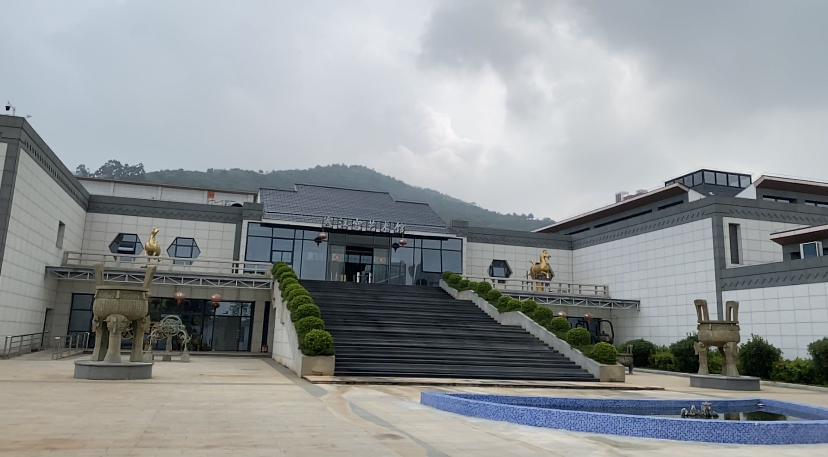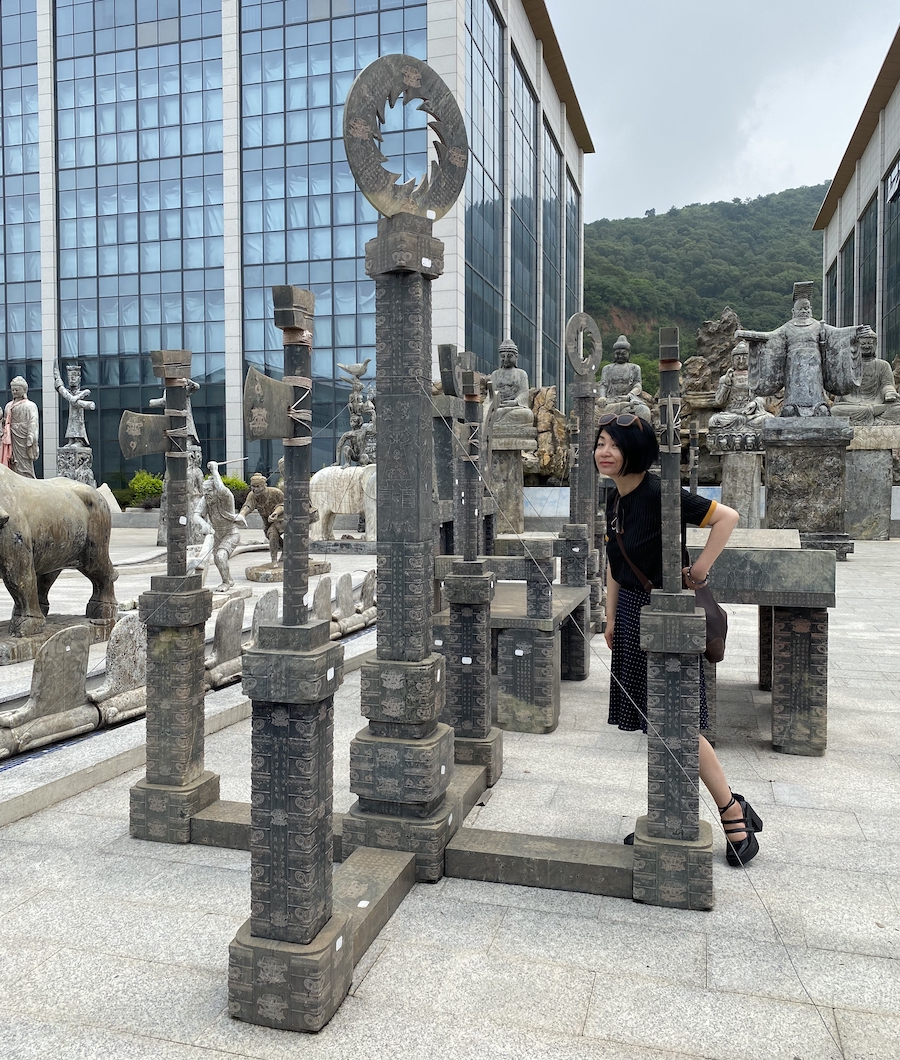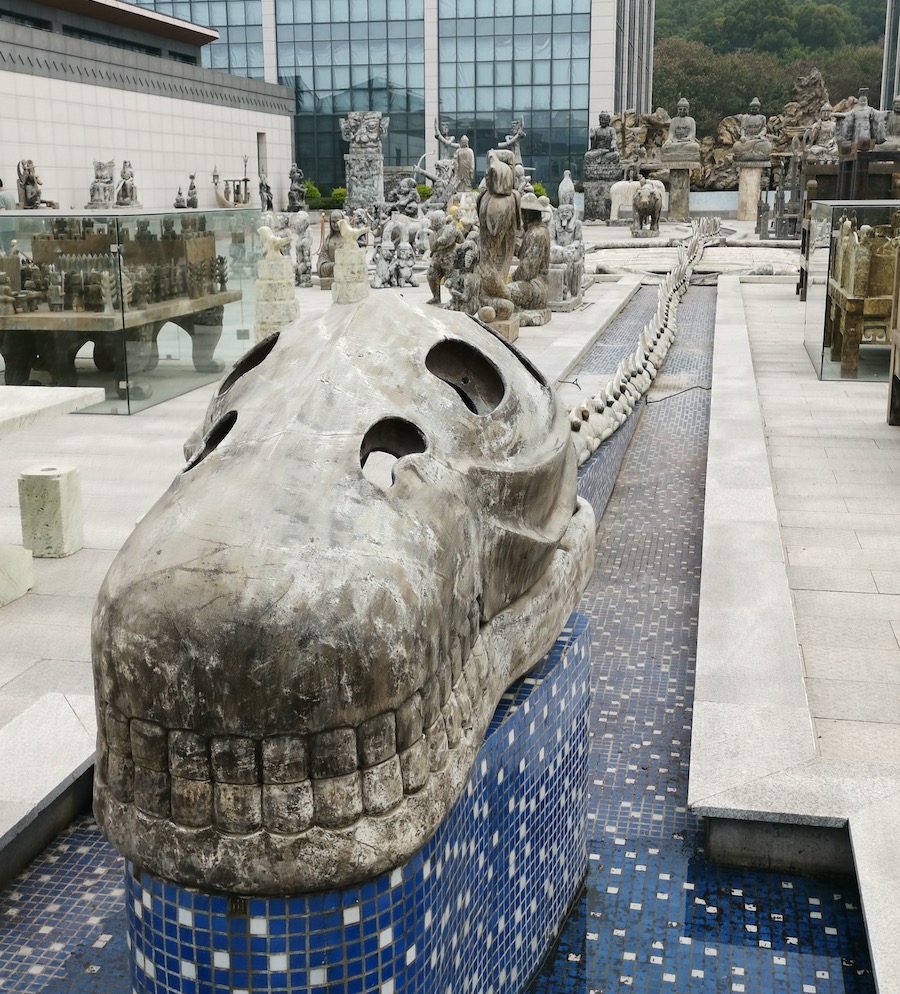Qiu Jiduan: Portrait of a Renowned Philanthropist, Art & Antique Collector and Visionary
Born in August 1942 in China’s Fujian Province, Mr. Qiu Jiduan lost his father at a young age and was brought up by his mother and grandmother. In 1962, he was admitted with honours to the Chinese Language and Literature Department at Beijing Normal University and became the first university student from his poor seaside village. After working and gaining experiences in his homeland’s heavy industry for some years, he finally settled down in Hongkong in 1973, where he started a sponge factory in partnership with other people five years later. The business failed. From 1982 on, he invested heavily in Mainland China, setting up the a furniture factory in Fujian, filling the gap in the industry. In 1985, he entered the real estate industry and built various projects in Xiamen. In 1989, when foreign investors were sceptical about investing in China, he took the opportunity to invest over HK$100 million in a 28-storey skyscraper, the tallest building in Xiamen at the time, successfully boosting China’s economical recovery. In 1996, he relocated all his factories from Hongkong to Shenzhen and continued building real estate projects in his hometown at the same time. He initiated the establishment of the Hong Kong Progressive Alliance, a patriotic political party. As a philanthropist, Mr. Qiu has donated heavily in China’s education across the country as well as set up scholarships for the poor and needy. In 1997, he donated RMB 3 million to his alma mater to support its development and to nurture talent and enhance the research and promote Chinese literature and arts. Mr. Qiu Jiduan is the sole investor in the largest privately owned museum in China, Hanjiangxue Art Experience Gallery.
Founded in 2015, the prestigious private museum is one of a kind, well situated in the beautiful Chinese city of Xiamen, the former Portuguese city sitting on the south-eastern coast.
Out of admiration for the stunningly impressive collection housed at Hanjiangxue Museum open to the public, I seemed to have no choice other than to beg my long-time good friend, Mr. Michael Xincheng Du — presently the collector of the largest Hongshan Culture in the world — to introduce me to its much famed and venerated owner, Mr. Qiu Jiduan, who is known as “the Confucian businessman” in the circle of innovative visionaries.
Collecting Chinese cultural relics has been his dream ever since he was a young man studying Chinese literature at the prestigious Beijing Normal University. Mr. Qin, Chairman of Hong Kong Wah Sing Investment, is a accomplished businessman who loves his country and people. I believe this is exactly the reason why Mr. Qiu is advisor to the China Overseas Friendship Association and the Honorary Chairman of the Federation of Fujianese Associations in Hong Kong, actively engaged in local social life and pushing for positive changes.
Being the sole investor in the largest private museum in China, Mr. Qiu has not only made his dream come true, but has also made his dream part of the Chinese Dream!
He had a humble beginning of a down-to-earth entrepreneur. “For me, it’s a matter of dignity, which isn’t an abstract thing at all. Every step one takes, every vision one has is a manifest of dignity,” Qiu elaborates. “I started out as a furniture maker in China in the 1980s, after the opening up policy. Dignity has been a state of mind of my half-century of collecting. You need a sense of dignity to find your calling in life. Nevertheless, compassion is what I have found in everything I do. The Tao, so to speak! Compassion is my Tao and I hope that the Tao will spread and branch out through my vision based in ancient Chinese wisdom.”
The name of the private museum is inspired by a Tang Dynasty poem. Hanjiangxue means River Snow, written by philosopher, poet, and politician Liu Zongyuan (773–819).
River Snow
From a thousand hills, bird flights have vanished
On ten thousand paths, human traces wiped out
Lone boat, an old man in straw cape and hat
Fishing alone in the cold river snow
“Compassion is to look beyond your own pain and beyond your own dream,” Qiu continues quickly scanning his enormous collection of porcelain while walking down the aisle flanked showcases of all sizes. The sun shines through the sloping glass roof as the aged gentleman connoisseur bends over and picks up a piece gently, his face beaming with humility, without false pretences. “Each piece in the exhibition hall has been handpicked by me over a course of nearly fifty years. Even today, I still examined each item, be it a painting, a sculpture, a bronze vessel or statue.”
“Practising compassion is to exchange energy and caring attention at eye level. This is why I find my philanthropical work as important. It is meaningful to myself and my country’s future. I want to give every ordinary man and woman the chance to appreciate Chinese culture in its full spectrum! For instance, I have donated 4,000 pieces from my porcelain collection to the Jianxiong Art Institute. They sent a team of experts and scholars to select their personal favourite pieces. I donated another 2,600 pieces from my prehistorical Liangzhu Culture collection to a museum. I’m happy I can these plant small seeds for the Chinese renaissance to bear fruit for next generations. Let young people know the grandiose Chinese civilization and be educated. It’s necessary work as well.”
When he made his first bucket of gold in Hong Kong half a century ago, he had a thousand plans, but he chose to use it to build the first dormitory building for the teachers of his alma mater, Quanzhou No. 5 Middle School. When his alma mater, Beijing Normal University, decided to expand to build a gymnasium, he donated for its construction. Yes, I agree. Education is practising compassion.
During the Covid outbreak, Mr. Qiu Jiduan led the fundraising for Wuhan. During this period, he even managed to donate 1,000 pieces of antique ceramics from his collection to a university in Taiwan, including a most precious blue porcelain item from Ming Dynasty that is worth RMB 2 million. “I would like to buy all the Chinese antiques scattered around world that belong to my country. The Ming blue porcelain is very rare and I own only one of those unique pieces. But I realised that it is my duty to be able to use the artefacts to educate our youth and inspire in them a sense of cultural identity and pride. Life is short and I truly hope that our young people from mainland and Taiwan can laugh together soon!”
Rumour has it that the generous culture and art aficionado once paid a million US dollars to upgrade the flight tickets for the Chinese female national volleyball team to business class shortly before their boarding, leaving for a world championship.
Hanjiangxue Museum feels emotional because of its owner’s mission sense: Everything feels at home in this place, from gigantic pre-Qin bronze to fragile calligraphy scrolls, from mysterious Hongshan statues to alien-like Sanxingdui masks to rare ancient manuscripts.
“China’s past is diverse and rich. Chinese identity is pluralistic, this quality runs in the veins of the Chinese civilisation since time immemorial,” Qiu says with a passionate big gesture.
The evidence can be found at this “genre-bending” private museum covering over 3000 square meters, all of it filled with objet d’art of unsolved mysteries related to ancient Chinese civilization and religion, and even the origin and destiny of human beings. The grand spectacle isn’t like anything I know. Its unparalleled vision touches me through small things.
Hanjiangxue Museum is a heartfelt wonder that cannot be seen and experienced elsewhere, not at the Louvre in Paris, not even at the British Museum.



